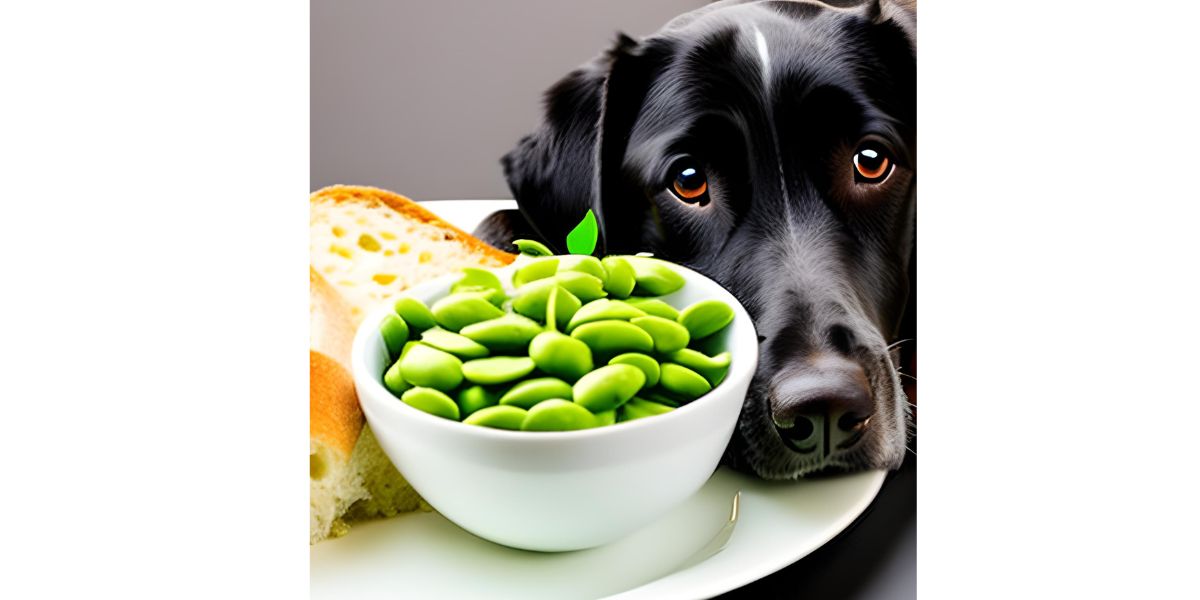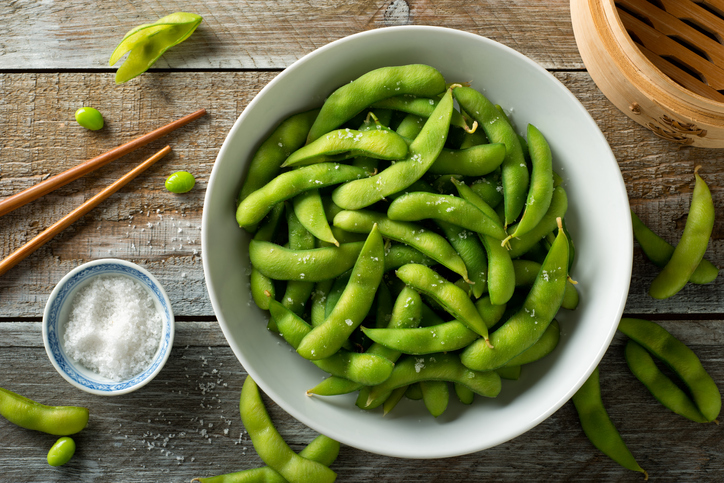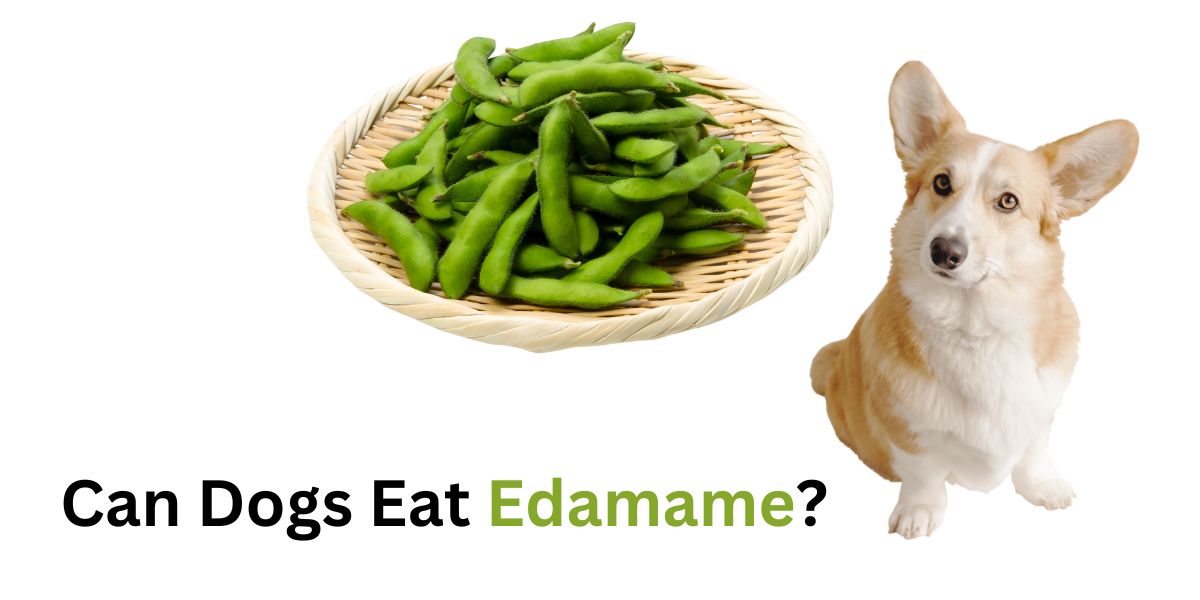Can Dogs Eat Edamame?

Picture this: you’re sitting at your kitchen table, enjoying a delicious bowl of edamame and savoring every perfectly seasoned bite. Suddenly, your furry four-legged friend, with those irresistible puppy eyes, comes sniffing around, begging for a taste. Now you’re faced with a pressing question: can dogs eat edamame?
In this article, we’ll dive into the world of doggie diets to uncover whether this delightful legume is a safe and nutritious treat for your canine companion. We’ll explore the potential benefits and risks, sharing expert insights to help you make an informed decision about incorporating edamame into your pup’s diet. So, grab a cup of coffee and let’s dig in to the enticing topic of dogs and edamame.
Can Dogs Eat Edamame?
Health Benefits of Edamame for Dogs
If you’re a dog owner who loves healthy snacking, you might be wondering if it’s safe to share your beloved edamame with your furry friend. Well, the good news is that edamame can indeed be a wholesome and nutritious treat for your canine companion. Not only is it rich in essential nutrients, but edamame also offers a range of health benefits for dogs.
Edamame is packed with protein, which is vital for the growth and maintenance of your dog’s muscles. It is also a great source of fiber, which can aid in your pup’s digestion and promote a healthy digestive system. Additionally, edamame contains vitamins and minerals such as vitamin K, vitamin C, folate, manganese, and potassium, all of which play a crucial role in maintaining your dog’s overall health.
Potential Risks of Feeding Edamame to Dogs
While edamame can offer numerous health benefits, it’s essential to be aware of potential risks associated with feeding edamame to dogs. One significant concern is the presence of soy in edamame. Soy can be difficult for some dogs to digest and may cause gastrointestinal issues. It’s crucial to monitor your dog and watch out for any signs of an upset stomach or allergic reactions after consuming edamame.
Another potential risk is the salt content in edamame. Too much salt can be harmful to dogs and may lead to issues such as dehydration and kidney problems. Therefore, it’s essential to ensure that the edamame you feed your dog is unsalted or cooked with minimal salt.

Preparing Edamame for Dogs
Before feeding your dog any edamame, it’s important to prepare it properly to ensure it’s safe and easily digestible for them. Start by cooking the edamame thoroughly until it’s soft and tender. It’s strongly advised not to feed your dog raw or undercooked edamame, as it can be difficult for them to digest.
Furthermore, always remove the edamame beans from the pods before feeding them to your dog. The pods can be a choking hazard and should be avoided to prevent any potential accidents. Once the edamame is cooked and the beans are removed from the pods, you can serve them to your pup as a healthy snack or mix them in with their regular meal.
Moderation is Key
As with any treat, moderation is key when it comes to feeding edamame to your dog. While it can be a healthy and nutritious addition to their diet, it should not replace their regular meals. Experts recommend that treats, including edamame, should make up no more than 10% of your dog’s daily calorie intake. As every dog has different dietary needs and restrictions, it’s best to consult with your veterinarian to determine the appropriate portion size for your furry friend.

Other Healthy Snack Alternatives for Dogs
If your four-legged friend isn’t particularly fond of edamame or if you’re looking for some variety in their snack options, there are plenty of other healthy alternatives you can offer. Carrots, green beans, and cucumber slices are low in calories and high in nutrients, making them excellent choices for dogs. Additionally, small pieces of cooked chicken or turkey can also serve as a tasty and protein-packed snack.
Consulting a Veterinarian
Before introducing any new food into your dog’s diet, it’s always recommended to consult with your veterinarian. They can provide personalized advice based on your dog’s specific needs and health condition. Your veterinarian will consider factors such as your dog’s breed, age, weight, and any existing health issues before advising whether or not edamame is a suitable addition to their diet.

What Other Foods are Safe for Dogs?
Besides edamame, there are several other human foods that are safe and healthy for dogs to consume. Some examples include:
- Lean meats such as cooked chicken, turkey, or lean cuts of beef
- Plain, cooked rice or pasta
- Plain, cooked vegetables like green beans or carrots
- Fruits like apples (without seeds or cores), bananas, and blueberries
- Plain, unsweetened yogurt
- Peanut butter (without xylitol)
Remember to always introduce new foods slowly and in small quantities to avoid upsetting your dog’s stomach. Furthermore, it’s essential to avoid feeding dogs any food that is toxic to them, such as chocolate, grapes, onions, garlic, and avocados.
Conclusion
In conclusion, edamame can be a healthy and nutritious treat for your dog, providing them with essential nutrients and offering various health benefits. However, it’s crucial to be mindful of the potential risks, prepare the edamame properly, and feed it to your dog in moderation. If you have any concerns or questions about your dog’s diet, it’s always best to consult with your veterinarian, who can provide professional guidance based on your pet’s individual needs. Remember, a balanced and well-rounded diet is key to keeping your furry friend happy and healthy!
